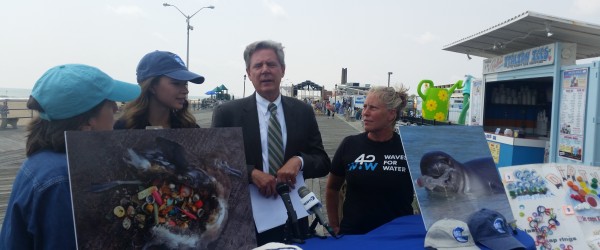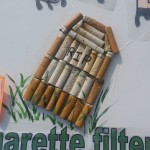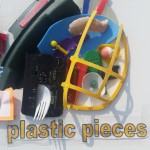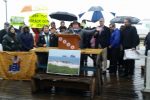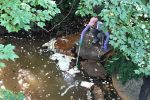Clean Ocean Action tackles the Real Plaque of the Ocean
Pallone and local biz owner Schlossbach join in summer campaign
More dangerous than any shark or Portuguese-Man-of-War, plastic straws are among the dirty dozen list of ocean debris on the rise.
“The real monster out there in the marine environment is the plastics,” said Cindy Zipf, Clean Ocean Action Executive Director.
According to COA statistics, there are more than 5.25 trillion pieces of plastic in the ocean, a number that rises daily.
“The beach sweeps does show these are visible signs of pollution,” Zipf said during a press conference to launch their summer campaign held Wednesday afternoon at Langosta Lounge. “We collected the dirty dozen but last year there were over 242,200 items.
Zipf said 96 percent of the plastic items collected were single use plastics [like straws] and only eight percent of them were recyclable.
The dirty dozen also includes plastic pieces, cigarette filters, glass pieces, plastic cap rings, plastic drink bottles, plastic food wrappers, shopping bags, lumber pieces, plastic utensils, and paper and Styrofoam pieces.
This year, as part of its annual summer campaign, the Highlands based nonprofit has chosen to target plastics. They are joined in their efforts by restauranteur Marilyn Schlossbach and U.S. Rep. Frank Pallone Jr., D-N.J. 6th District.
Schlossbach has initiated a no straw policy at her eatery. Since doing so last month, the restaurant has reduced their weekly case of straws purchase to just one case for the entire month of June.
“We’ve been able to give our customers an awareness,” Schlossbach said. “It’s sad to see what we do to our wildlife who doesn’t buy into this process. I’m hoping our one little thing can ignite people to want to do something similar and cut back on their plastic usage.
The more difficult challenge is the micro plastics, ‘the stuff that we can’t see,’ Zipf said.
“[Micro plastics are] really getting insidiously into our marine environment not just from breaking down into bits and bits and bits but from the actual industrial use I don’t think many of us were aware of,” Zipf said.
Congressman Pallone said he will introduce a Microbeads-Free Waters Act this month to help remove the dangerous micro plastics from personal care products. Because of their size, municipal filters are unable to keep them out of our waterways, Pallone said.
The bill, which has 25 bipartisan cosponsors, would ban micro plastics in everything from cosmetics, facial and body scrubs to toothpastes and deodorants, effective January 2018, Pallone said.
“We have a responsibility to stop the unnecessary and dangerous pollution caused by microbeads in personal care products,” Pallone said. “Many people buying products containing these tiny plastic particles are unaware of their damaging effects.”
This summer’s campaign uses a 12 step guide to kicking the plastic habit, said Clean Ocean Action Shore Tips intern Melissa Mertz, a Rutgers University Environmental Policy student.
The list familiarizes the public with recycling, the systems, and understanding one’s own plastic habits to various steps one can take to support the legislation and remove a damaging use of plastic products, Mertz said.
——————————–
Follow the Asbury Park Sun on Facebook, Twitter and Instagram.

